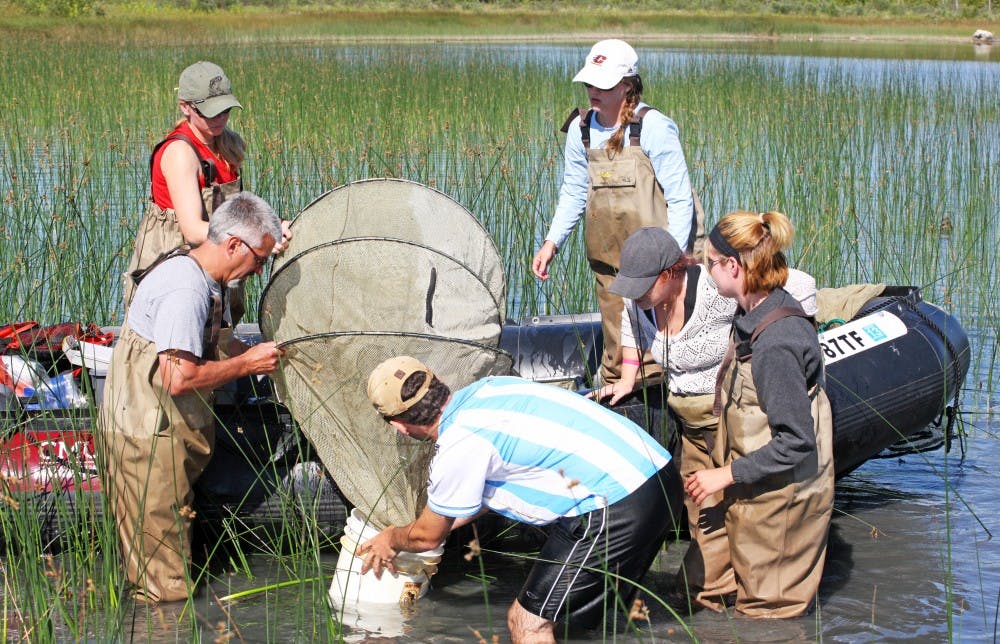Beaver Island to offer new summer courses

John Gordon’s mission for this summer is to get as many students as possible on a ferry destined to Beaver Island.
“To learn with an expert faculty in a small class size at the Biology Station on Beaver Island is really an unmatched learning experience,” said the Biological Station manager. “You couldn’t get that anywhere else. It’s the uniqueness of the island.”
Summer courses at CMU’s Biological Station are open for registration, including a few new classes. Educating an average of 120 students annually, many courses on the island condense material from a 15-week course into approximately three weeks. A combination of hands-on learning and community-building makes the Biological Station a unique educational experience.
Beaver Island rests in Lake Michigan, 32 miles from the shore of Charlevoix.
New to the curriculum, Physical Geography 105 will be held in the second summer session. General Physics 130 and its instructor Bin He will also make their debut on Beaver Island this year.
Although the fixed-term faculty member has not been on Beaver Island before, he said he looks forward to teaching the science of matter and movement at the station.
“When we study the laws of physics we can, for example, watch the waves in the lake and actually explain the periodic motion,” He said. “There are actually some physics laws behind that. We can use something on the island and relate it to the physics laws within this class.”
He also sees an advantage in the small class sizes. On CMU’s main campus, the same physics course seats 100 students, he said. Classes on the island, however, contain around 20 students. This allows for more individual interactions between instructors and students.
Ornithology and Great Lakes Limnology will also be offered during the first and second summer session, respectively. It has been at least five years since either class was taught at the station, Gordon said.
Associate professor of biology Donna King credits the enthusiasm students have for attending classes on the island to the sense of community that is promoted there. Classes can last most of the day, from 8 a.m. to 5 p.m. For dinner, everyone at the station eats together. Afterward students usually have study sessions or seek the help of professors. This fosters a lot of communication between students and professors, creating a close-knit community.
“Having taught there a lot, it’s a different relationship that you have with your professor than you do on campus," King said.
St. Charles senior Shelby Walker agrees.
“You really get to know your professors on a different level," she said. "You hear their stories, in relation to what they’re studying or what they are talking about in class. You really get to know more than what they research and what they do at school.”
Walker looks forward to taking her fifth class on Beaver Island this summer. Learning at the Biological Station is very different than classes on CMU's campus, Walker said.
“You get to do a lot more active learning. It’s not all classroom lecture learning,” Walker said. “There, it’s a lot of ‘let’s go to a spot on the island’ and ‘we’re going to learn about (the subject matter) out where it actually happens,’ instead of just reading about it and hearing about it in class.”
Courses on the island are tailored to take advantage of its resources and features, Gordon said. Beaver Island has seven inland lakes and a wide variety of natural ecosystems that serve as tools to teach science courses.
In addition to the facilities, faculty and courses at the Biological Station, Gordon finds himself drawn back to the splendor of Beaver Island.
“I don’t even know how students study. The view is just beautiful,” Gordon said. “And that’s what we do. We try to get students up there and enjoy it.”
Open registration for first and second summer sessions end on May 17. More information can be located on the CMUBS webpage.



